Affiliate links on Android Authority may earn us a commission. Learn more.
Test finds Snapdragon 808 doesn't heat up as much as the 810
Published onApril 30, 2015
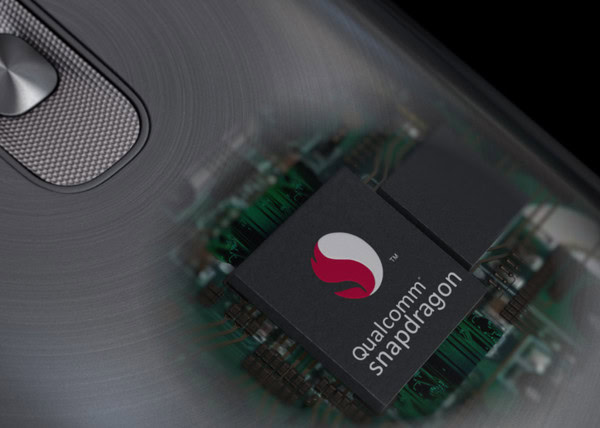
The Snapdragon 810 has been haunted by overheating rumors this year and some have wondered how much this has influenced LG’s decision to opt for a Snapdragon 808 with its new G4. Regardless of the history, testing by ArsTechnica has found that Snapdragon 808 does indeed run cooler than the 810, which shouldn’t be that surprising considering that it is two CPU cores smaller. But this appears to have some important implications for SoC performance.
To keep the tests fair, an initial two-thread performance test which runs for a set time was used to see how these two processors compared running similar workloads. The LG G4 is used to test the Snapdragon 808, while a LG G Flex 2 represents the Snapdragon 810.
The results are quite stunning, the Snapdragon 808 powered LG G4 can keep hitting its peak 1.8GHz clock speed for 6 minutes, before slowing succumbing to throttling down to 1.4GHz after almost 15 minutes. The Snapdragon 810, on the other hand, barely reaches its peak speed before appearing to throttle to around 1.4GHz and then being almost locked to its minimum speed after just three minutes.
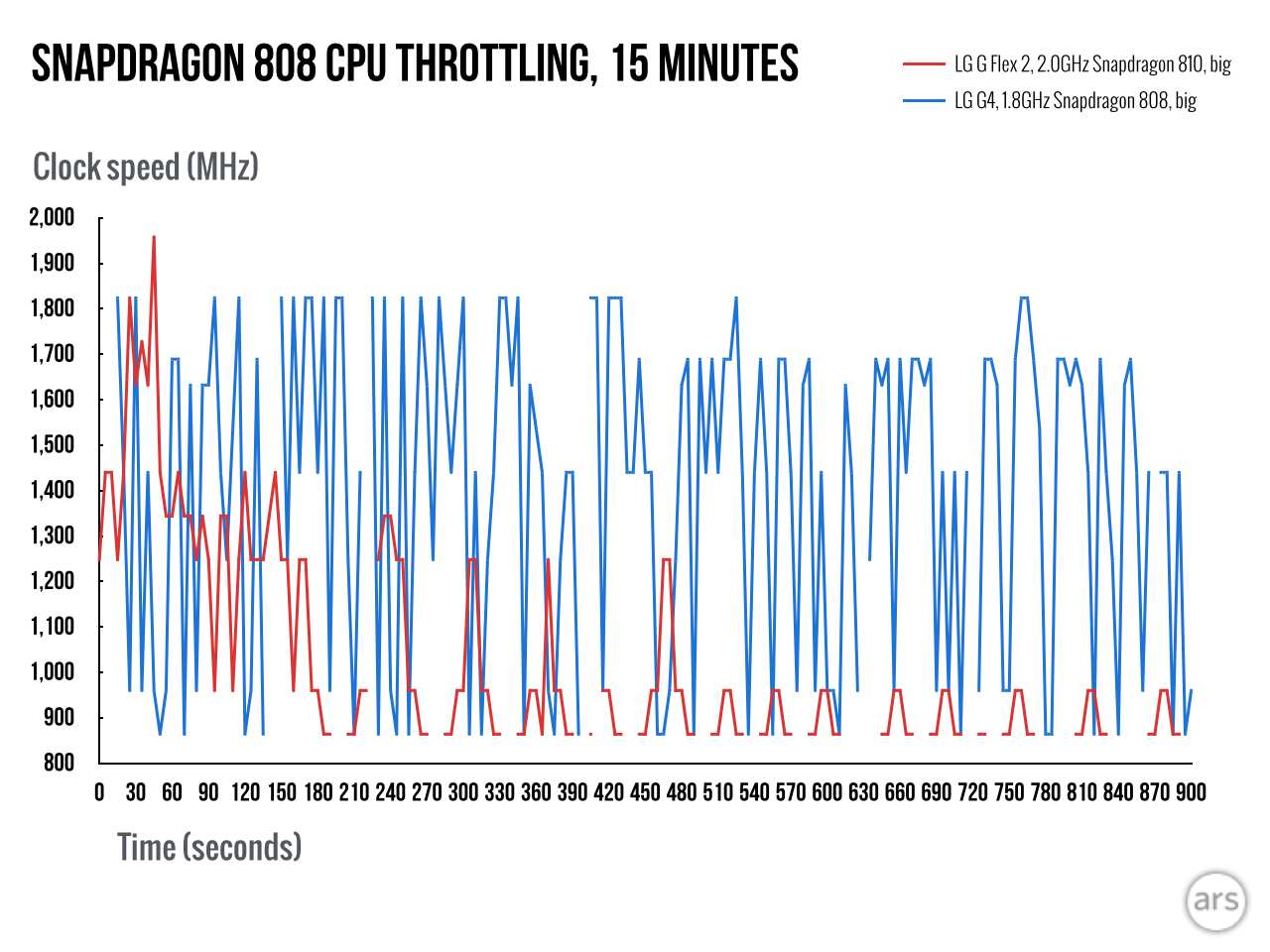
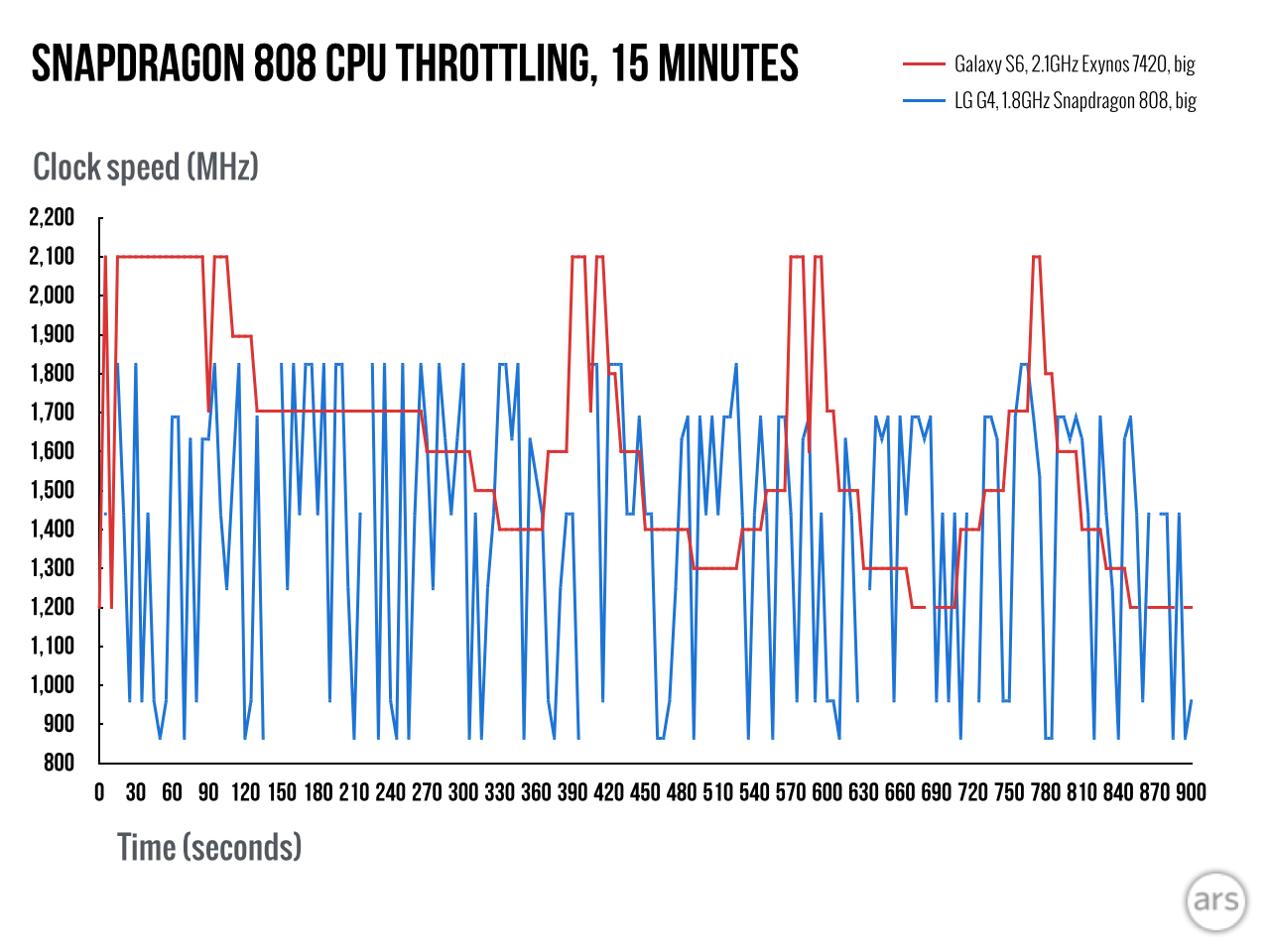
Oddly, both processors swing widely between peak and minimum speeds, although this could be something to do with the test and/or the way that the processor handles core loads. Also keep in mind that this is just two devices tested with a single benchmark. We can’t say for certain that almost identical results would be obtained from a Snapdragon 810 powered HTCOne M9 or Sony Xperia Z4. Samsung’s Exynos 7420 powered Galaxy S6 doesn’t appear to show any medium term throttling issues.
It’s also well worth pointing out that for regular, undemanding tasks this shouldn’t make a major difference to performance. But if you’re a heavy multi-tasker or gamer, the throttling that appears on the LG G Flex 2 would result in reduced performance over time. You can see a significant reduction in benchmark scores as the handset heats up, which doesn’t appear with the G4.
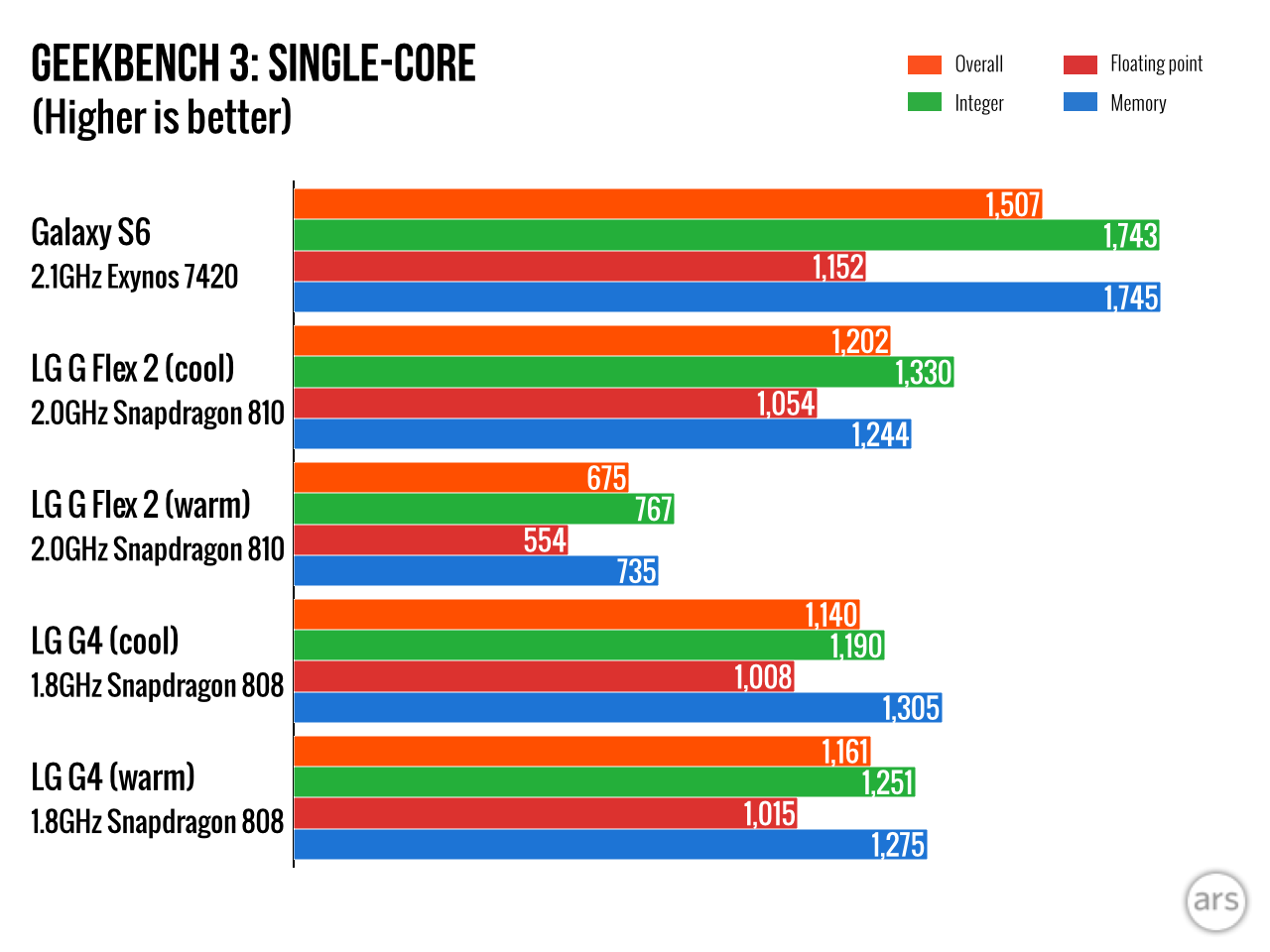
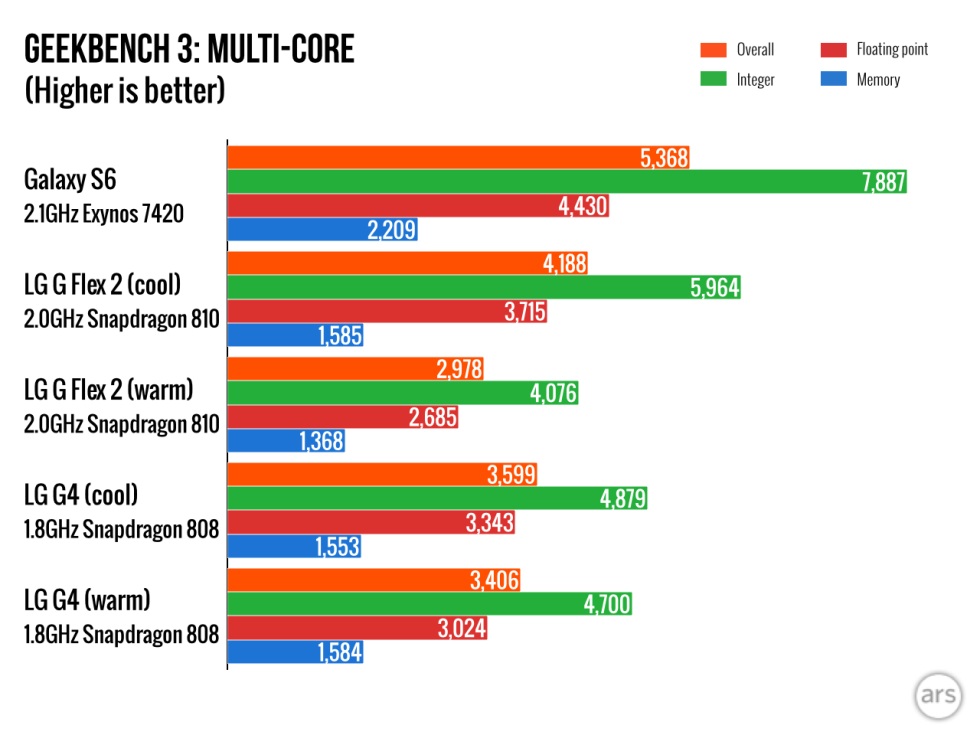
The results certainly point to a throttling issue with the Snapdragon 810, at least inside the LG G Flex 2, which might partially explain why we felt that the handset was a little sluggish. A complaint that we don’t have with the LG G4. While not all Snapdragon 810 powered handsets will necessarily suffer from throttling to exactly the same extent, there’s not much that different OEMs can do to cool the chip down. This certainly raises more questions and concerns about the 810’s performance as a flagship tier SoC.
Although Qualcomm says that heat had nothing to do with it, perhaps LG has played it smart by opting for the Snapdragon 808 in its new G4?